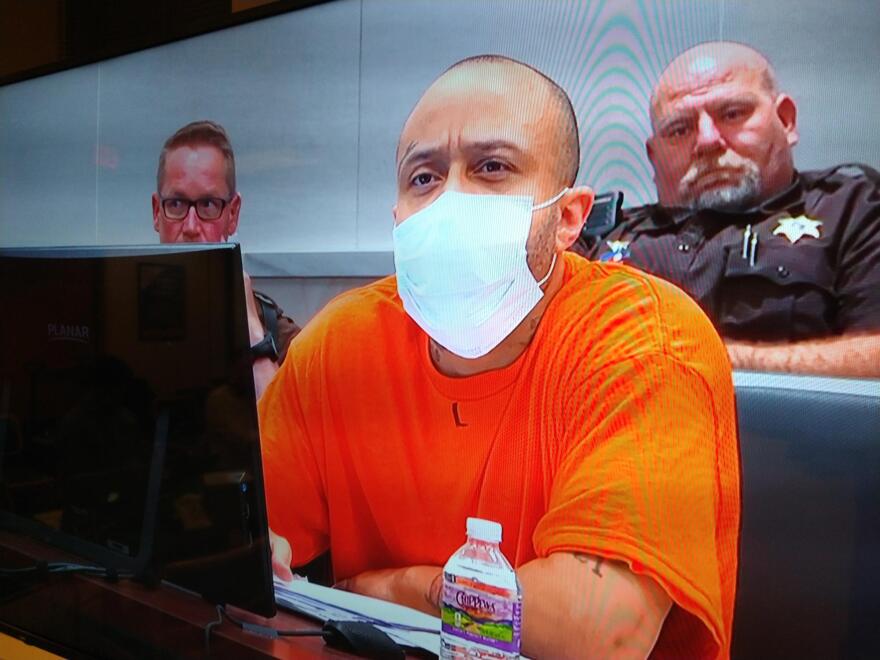Witness testimony is expected to continue Friday in the trial of a man accused of using his vehicle to kill six people and injure dozens at a Christmas parade in Waukesha last fall.
Testimony began Thursday after prosecutors laid out their case against defendant Darrell Brooks.
Brooks is pleading not guilty to six counts of intentional homicide and seventy-six other charges. But during an opening statement, Waukesha County Assistant District Attorney Zachary Wittchow said video evidence would show Brooks disrupted a festive scene last Nov.21 at the parade.
"The streets were lined with friends, family members and neighbors. People there to soak up the atmosphere. Kids ran into the street to grab candy from whoever was throwing it during the parade. It sounds corny, but I think you'll see from the videos there was a true sense of joy in the air. Darrell Brooks killed that joy. He replaced it with terror, trauma and death," Wittchow said.

Brooks is representing himself in the trial. He said he might make an opening statement when he begins his defense. But he did cross-examine the prosecution's first two witnesses, questioning them about what they say they observed.
One of those who testified, Waukesha Police Sergeant David Wanner, said he was the first police officer to see the red Ford Escape Brooks allegedly drive and enter the parade route.
Brooks asked Wanner about video evidence of the early part of the incident. "Do you see the said driver of that vehicle intentionally trying to hit anyone in that video?"
Wanner replied, "No."

Brooks also challenged the observations of the next witness, Kori Runkel, a woman who had befriended Brooks' former girlfriend at a woman's shelter in Waukesha. Police say that after threatening the former girlfriend in front of Runkel, Brooks angrily drove onto the parade route.
The witness testimony and opening statement came after hours of more verbal battles between Brooks and trial Judge Jennifer Dorow. One of the early debates was over Brooks deciding to wear orange jail attire in court instead of a suit jacket and tie, which he had worn during jury selection.
The Waukesha County jurist told the defendant:
"I would like you to appear in street clothes, and the reason why sir is to reduce or even eliminate the appearance you are in custody," Dorow said.
Brooks, mindful that the Waukesha parade case has received a lot of media coverage declined the request.
"There's no possible way that anybody will not know that I am in custody. I think that's a well-known fact because it's reported on every day in the media. It's shown every day on the news, where I am, which jail I'm housed in, and that I'm in custody," Brooks said.

Brooks was sent for much of the day to the next courtroom, where Dorow has him sit when she believes he is being disrespectful in court. For a time there, he took off his shirt, and stood with his back to the camera in that room. He also repeatedly held up a court-supplied sign that said OBJECTION, when Dorow was reading to the jury the seventy-six charges against Brooks.
But Brooks asked to be allowed back in the trial courtroom to cross-examine the witnesses. Dorow allowed that, and by the end of the day praised Brooks for his demeanor during the late afternoon.
He said he'll consider changing into street clothes before court is in session Friday, depending on the result of a COVID-19 test he's taken.



